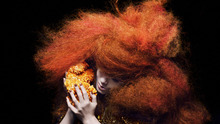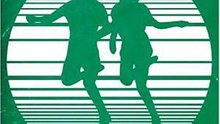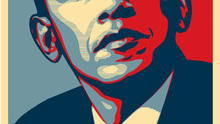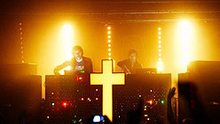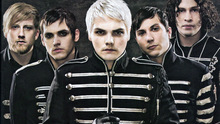For a minute back there a nation walked a few inches taller, smug in the news that Johnny Borrell was set to sever allegiances with fellow Razorlight members and pursue a solo career. It felt like vindication - Borrell’s ability to inspire hatred across generations is matchless, that much is a given, but when even your closest allies start to turn on you, well, that’s another matter entirely.
And while the prospect of a Borrell solo record is enough to send a seismic shiver down the spine of any right-thinking music-lover, nay human being, the aural havoc that man’s ego could wreak over the course of an album, untrammelled by the confines of being in a weedy-sounding garage band, is admittedly the source of not a little morbid fascination on my part at least. But alack and alas, it wasn’t to be, all’s apparently well in the Razorlight camp, world keeps turning, end of
It’s a tale as old as time, though – when you start out you’re a gang, a unified entity, but slowly egos start to balloon like that plant in Little Shop Of Horrors, distended from the fleshy morsels of adulation casually tossed in your direction, and the band begins its inexorable journey towards becoming a vehicle for the unhinged outpourings of one deluded man. Or it implodes in a seething mass of mutual resentment and ill-will, whatever.
In the ‘fuck our punk roots, I’m a serious singer-songwriter’ stakes, we have The Jam, who split in 1982 when Paul Weller decided a full-time career in soul-pastichery beckoned with The Style Council, and then there’s The Police, surely the strongest contenders for the mantle of ‘Razorlight of their age’. Oh it’s easy to laugh at Sting now, with his tantric lute music and his sex with indigenous tribespeople, but around the time of the abomination of unbridled pretention that is Fields Of Gold, some people were taking him very seriously indeed.
Video:
- -
The Clash were already dying on their arses when Mick Jones was kicked out of the band due to ‘problematic behaviour’ and that oldest of chestnuts, creative differences, but Joe Strummer limped on to do great disservice to the band’s memory with the stillborn Cut The Crap, while Jones found a smart outlet for his poppier sensibilities with Big Audio Dynamite. Two of the largest egos the world has ever seen took root in the tiny brains of Axl Rose and Roger Waters, the former turning a decent rock ‘n’ roll band into a circus freakshow of nth-rate Elton-esque balladry and enormodome vacancy, and the latter releasing The Pros And Cons Of Hitchiking, a concept album about one man’s midlife crisis set between the hours of 4.30am and 5.12am, one year before pompously declaring Floyd ”a spent force creatively” on the way out the door in 1985.
The Verve found short-lived fame and fortune with the clearly Richard Ashcroft-led Urban Hymns in 1997, but long-term fans couldn’t help but raise an eyebrow at the wannabee troubadour evident in MOR fare like ’Lucky Man’. Eight years and one good song after their split, Ashcroft puts the solo career on hold to reform the overrated outfit for a new album and tour. Coke-addled monsters of country rock The Eagles’ resolve to turn the other cheek when it comes to their obvious loathing of each other is rendered somewheat less noble by their decision to charge 950 quid a ticket at a forthcoming corporate gig.
There are countless other tales of rampant egotism in rock’s back pages we have neither the time or inclination to go into here – Lennon vs McCartney? Albarn vs Coxon? Morrissey vs the world at large? Who, then, are the conceited idiots that conspired to ruin your fave bands of all time? Who can you see going the same way in the near future? DiScuss...










